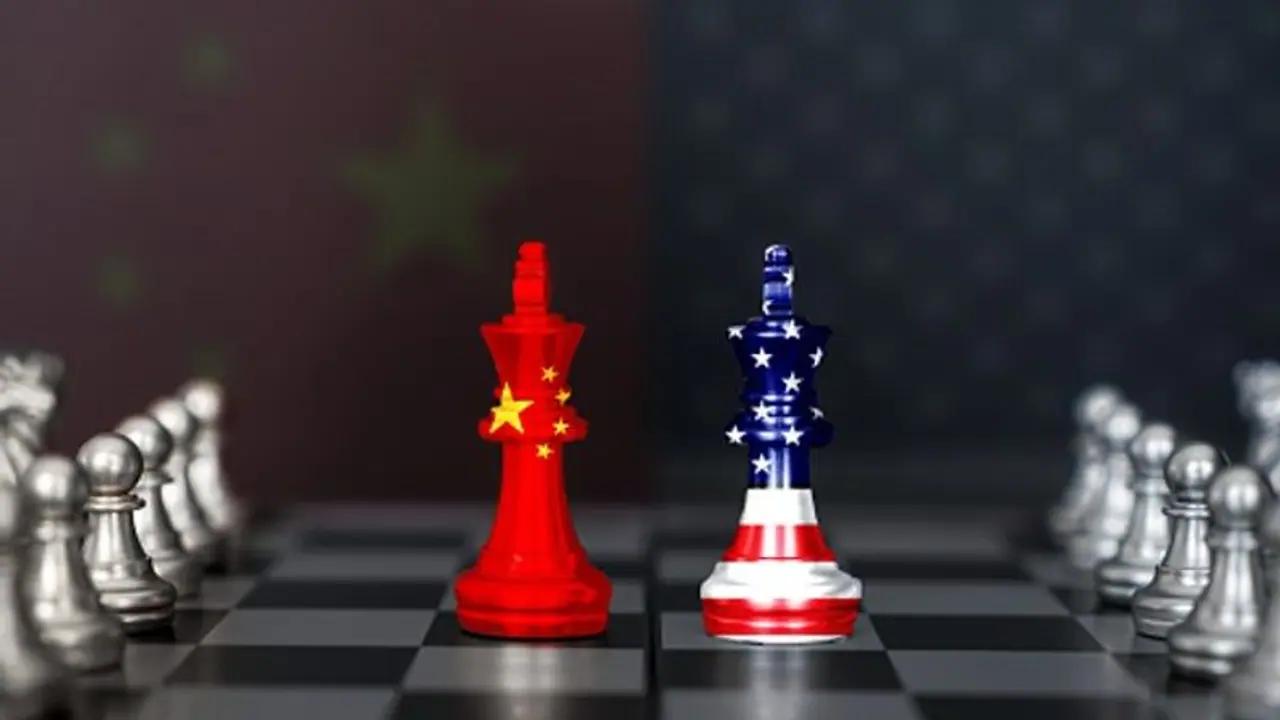China vows countermeasures as Trump imposes 34% tariffs on $438 billion worth of Chinese imports, escalating trade tensions.
China on Thursday vowed to take firm countermeasures after former US President Donald Trump announced 34 per cent tariffs on over USD 438 billion worth of Chinese imports to America, its third-largest export market.

Trump unveiled the tariffs on Wednesday as part of a sweeping “Liberation Day” package aimed at reshaping US trade policy. The decision escalates the long-standing trade tensions between the two economic giants.
China’s Ministry of Commerce swiftly condemned the move, emphasizing its firm opposition to the “reciprocal tariffs.” “China firmly opposes the US ‘reciprocal tariffs’ and will resolutely adopt countermeasures to safeguard its rights and interests,” a ministry spokesperson said following Trump’s announcement.
The latest tariffs bring the total levies on Chinese imports to 54 per cent, nearing the 60 per cent level Trump had threatened during his election campaign. Prior to this, Trump had imposed two rounds of 10 per cent tariffs on Chinese goods in February and March of this year.
Trump had earlier indicated that he might consider reducing tariffs on China if Beijing agreed to a deal for ByteDance to divest its short-video app TikTok to a US buyer.
China earlier imposed an additional 15 per cent tariff on American goods and initiated legal action against the US at the World Trade Organization (WTO).
Furthermore, Beijing added 10 US firms to its unreliable entity list and implemented corresponding restrictions against them. These firms include companies involved in defense, security, artificial intelligence, aviation, information technology, and dual-use items that have both civilian and military applications.
Chinese officials argue that while the new tariffs could harm US consumers, they are also likely to significantly impact American industries reliant on Chinese exports. The US constitutes China’s third-largest export destination after ASEAN and the European Union.
US-China Trade Figures
According to the Office of the US Trade Representative, the total goods trade between the US and China stood at an estimated USD 582.4 billion in 2024. US goods exports to China amounted to USD 143.5 billion, while imports from China totaled USD 438.9 billion. This resulted in a trade deficit of USD 295.4 billion for the US.
Trump justified the tariffs as a move to push China to purchase more US industrial and agricultural products. “We’re going to be charging a discounted reciprocal tariff of 34 per cent,” he said while addressing the press from the White House Rose Garden.
He also claimed that China had been imposing tariffs of 67 per cent on US imports, stating that the figure factored in currency manipulation and trade barriers.
Implementation Timeline
The newly imposed tariffs include a 10 per cent universal baseline and an additional 24 per cent specific to Chinese imports. The first 10 per cent will take effect on April 5, followed by the higher reciprocal tariffs on April 9.
Throughout his tenure, Trump had pledged to impose reciprocal tariffs to counteract what he described as unfair trade practices by other countries. The Hong Kong-based South China Morning Post reported that the new levies are part of Trump's broader effort to correct what he perceives as years of unfair trade practices that have hurt the US economy.
“The new levies would correct years of ‘unfair’ trade during which other countries had been ‘ripping’ off the US,” Trump said.
At the White House, Trump defended his decision as an act of “tough love” toward China. “I have great respect for President Xi (Jinping) of China, great respect for China, but they were taking tremendous advantage,” he said.
China’s Response
In response to Trump’s announcement, Liu Pengyu, spokesperson for the Chinese embassy in Washington, reiterated China’s stance against tariffs and protectionism.
“China’s opposition to the imposition of additional tariffs has always been consistent and clear,” Liu stated.
“China believes that protectionism leads nowhere, and trade and tariff wars have no winners,” The South China Morning Post quoted Liu as saying.
